Chia seeds are tiny, oval-shaped seeds that have a black-and-white appearance. They are the seeds of a plant that is native to Mexico and were a common food in ancient cultures.
According to registered dietitian nutritionist Jenna Volpe, RDN, “Chia seeds were first cultivated as a nutritional staple in Mesoamerican societies, in the Mexican region among the Aztecs and Mayans, thousands of years ago.
This may help to explain how the word “chia” came to be taken from the Nahuatl Aztec word “chian,” which means “oily” in Spanish.
Chia seeds have been used by people for thousands of years, and many people still eat them now. Chia seeds don’t provide much depth to meals because of their mild flavor, but they make up for it in nutrition.
Chia seeds, which are small but mighty, are now gaining popularity in the fields of nutrition and health. The health of your heart, stomach, and brain can be strongly impacted by just one spoonful of these magical seeds.
Chia seeds are a nutrient-rich food that, in a 28-gram serving, includes 138 calories, 8 grams of fat, 12 grams of carbs, 10 grams of fiber, and 5 grams of protein.
Additionally, they supply 18% of the daily requirements for calcium, 27% of phosphorus, 30% of manganese, and lower amounts of potassium, zinc, and copper.
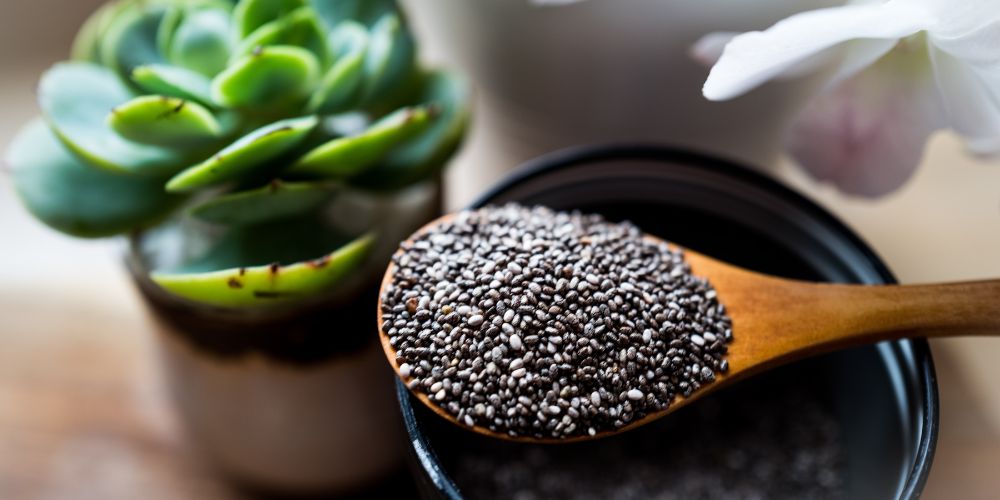
The nutritious composition of 3.5 ounces (100 grams) of chia seeds is as follows:
| Nutritious | Amounts | Nutritious | Amounts |
| Fiber | 34.4 grams | Carbs | 42.1 grams |
| Fat | 30.7 grams | Saturated | 3.33 grams |
| Calories | 486 | Omega-3 | 17.83 grams |
| Water | 6% | Omega-6 | 5.84 grams |
| Protein | 16.5 grams | Trans | 0.14 grams |
| Monounsaturated | 2.31 grams | Polyunsaturated | 23.67 grams |
| Gluten | Free | Sugar | 0 grams |
Strengthening the brain
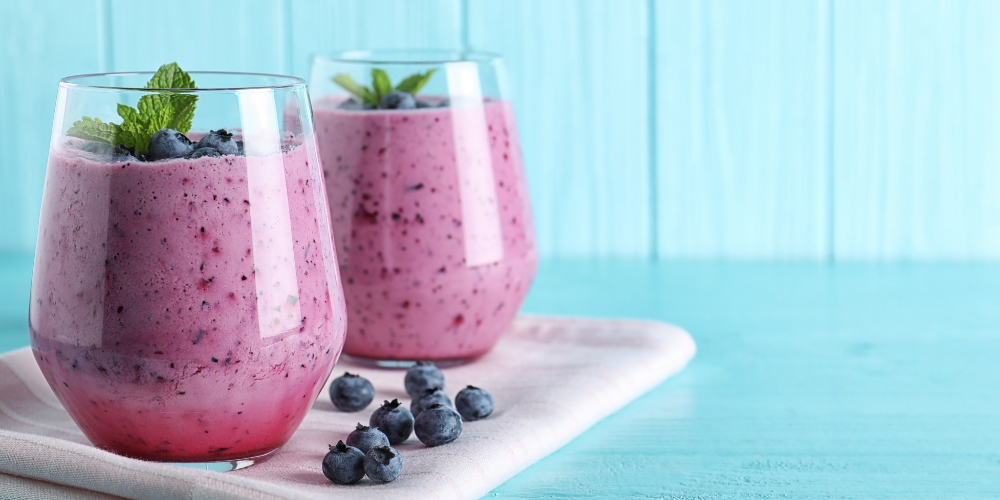
Omega-3 fatty acids, which are essential for the health of the brain, are rich in chia seeds. These fatty acids, which are also present in fish oil, flax seeds, and kiwi seeds, are essential for preserving cardiovascular and skin health as well as elevating mood and regulating lack of food.
They act as a natural mood enhancer and help lessen the signs of anxiety and despair. They also assist with regulating appetite, reducing overeating, and promoting healthier eating habits. Omega-3 fatty acids support cardiovascular health and lower the risk of heart disease while also giving the skin a natural glow and the cardiovascular system a healthy heart.
Chia seeds are a straightforward but effective strategy for improving your brain health because one tablespoon of them can provide an important portion of your daily Omega-3 requirements.
Salvia Hispanica L., the plant that produces chia seeds, was the subject of a study that was published in the Journal of Food and Nutritional Disorders. The study examined the potential of this plant as a “brain superfood.” The study investigated the ways by which these microscopic seeds can improve cognitive processes and perhaps raise intelligence.
Researchers discovered that omega-3 fatty acids, which are well recognized to be essential for supporting brain health, are abundant in chia seeds. These fatty acids play a crucial role in cognitive functions including memory and attention because they are essential to the structure and functioning of brain cells.
In addition, the high antioxidant content of chia seeds aids in avoiding oxidative stress, a major contributor to aging and neurological illnesses, from damaging brain cells.
These seeds also include several other nutrients that are good for the brain, like magnesium, which helps with nerve transmission, and iron, which is necessary for the synthesis of neurotransmitters, the chemical messengers of the brain.
Improve Digestion
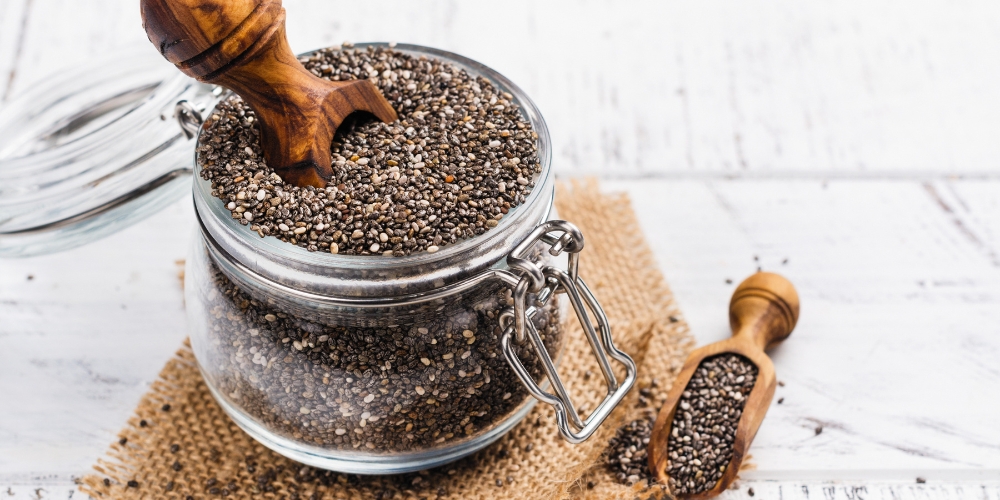
Chia seeds are a game-changer when it comes to supporting a healthy digestive tract, particularly in young children who can gain from their nutritional profile. They are a fantastic probiotic that supports a healthy gut microbiota and are a great source of dietary fiber.
Due to their high soluble fiber content, chia seeds develop a distinct gel-like texture during digestion. Not only is this change fascinating to watch, but it also has huge health advantages.
The gel-like substance aids in intestinal cleansing by gently and gradually eliminating waste and impurities. Constipation and other digestive health problems may be avoided thanks to this.
Chia seeds can hold up to 12 times its weight in water, which helps with digestion and keeps you hydrated.
Chia seeds can improve digestive health and relieve IBS symptoms, such as constipation.
How do they help with IBS symptoms?
These seeds may provide a natural means of treating IBS symptoms due to their rich nutritional composition. In certain cases, they may even be more tolerable than some common IBS therapies.
The presence of caffeic acid in chia seeds and omega-3 fatty acids may help to lessen gastrointestinal inflammation. As a result, common IBS symptoms including diarrhea, bloating, and pain in the stomach may be reduced.
They are also a good option for those with IBS because they are low in FODMAPs.
Improving intestinal health
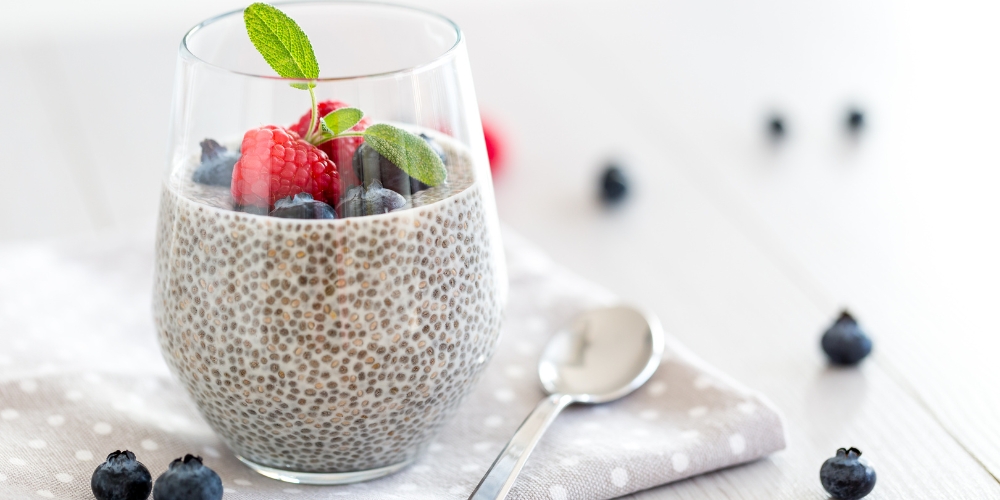
Overall health depends on having a balanced gut microbiome with a healthy balance of “good” and “bad” bacteria. An imbalance in this bacterial environment, known as dysbiosis, can lead to inflammation and other health problems.
Chia seeds may improve gut health by boosting the population of helpful bacteria, lowering the number of bad bacteria, and strengthening the gut lining thanks to their high fiber and Omega-3 content. By doing this, harmful germs are kept out of the body.
Prevention of constipation
Chia seeds are a great source of dietary fiber and can help people with IBS-C in managing their bowel movements and avoiding constipation.
According to the National Nutrient Database of the United States Department of Agriculture (USDA), a serving of chia seeds (28 grams, or 2 1/2 tablespoons) has 11.2 grams of fiber.
Chia seeds can speed up intestinal transit by their high fiber content, helping people manage constipation.
Beyond heart health
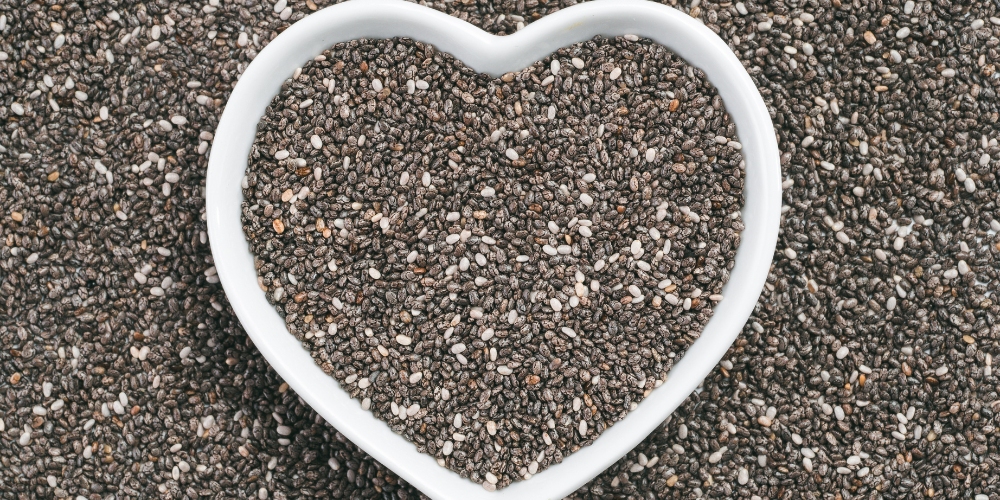
Chia seeds contain significant amounts of calcium, magnesium, zinc, iron, and antioxidants. They are also high in fiber. These amazing plants may greatly enhance health, especially in preventing heart disease. They are a fantastic source of the antioxidant quercetin, which helps in reducing the risk of a variety of heart diseases.
Additionally, the high fiber content of these seeds is essential in controlling excessive blood pressure, which in turn lowers the risk of heart disease.
Chia seeds consist of:
- a superfood high in fiber that aids in digestion and the repair of the gastrointestinal tract,
- a heart and brain superfood. Compared to salmon, chia has eight times more omega-3 lipids!
- rich in antioxidants,
- has five times the calcium of milk.
- has seven times the vitamin C of oranges,
- three times as much iron as spinach,
- more potassium than a banana by two times,
- Healthful foods for the skin, hair, and nails,
- A mineral that helps keep blood sugar levels in check.
Chia seeds are typically regarded as a safe and healthful diet, although they can have some unwanted effects on some people. To make sure you’re consuming this food in a way that’s good for your health, it’s crucial to be aware of these potential adverse effects.
Uncomfortable digestion
Digestion discomfort is one of the most typical chia seed side effects. Chia seeds are rich in fiber, offering an astonishing 11 grams in just one ounce.
Although fiber is good for your digestive system, promoting regular bowel movements, and helping to regulate your blood sugar levels, an abrupt increase in fiber intake can cause issues like bloating, gas, and stomach cramps. This is particularly relevant for people who aren’t used to eating a lot of fiber.





